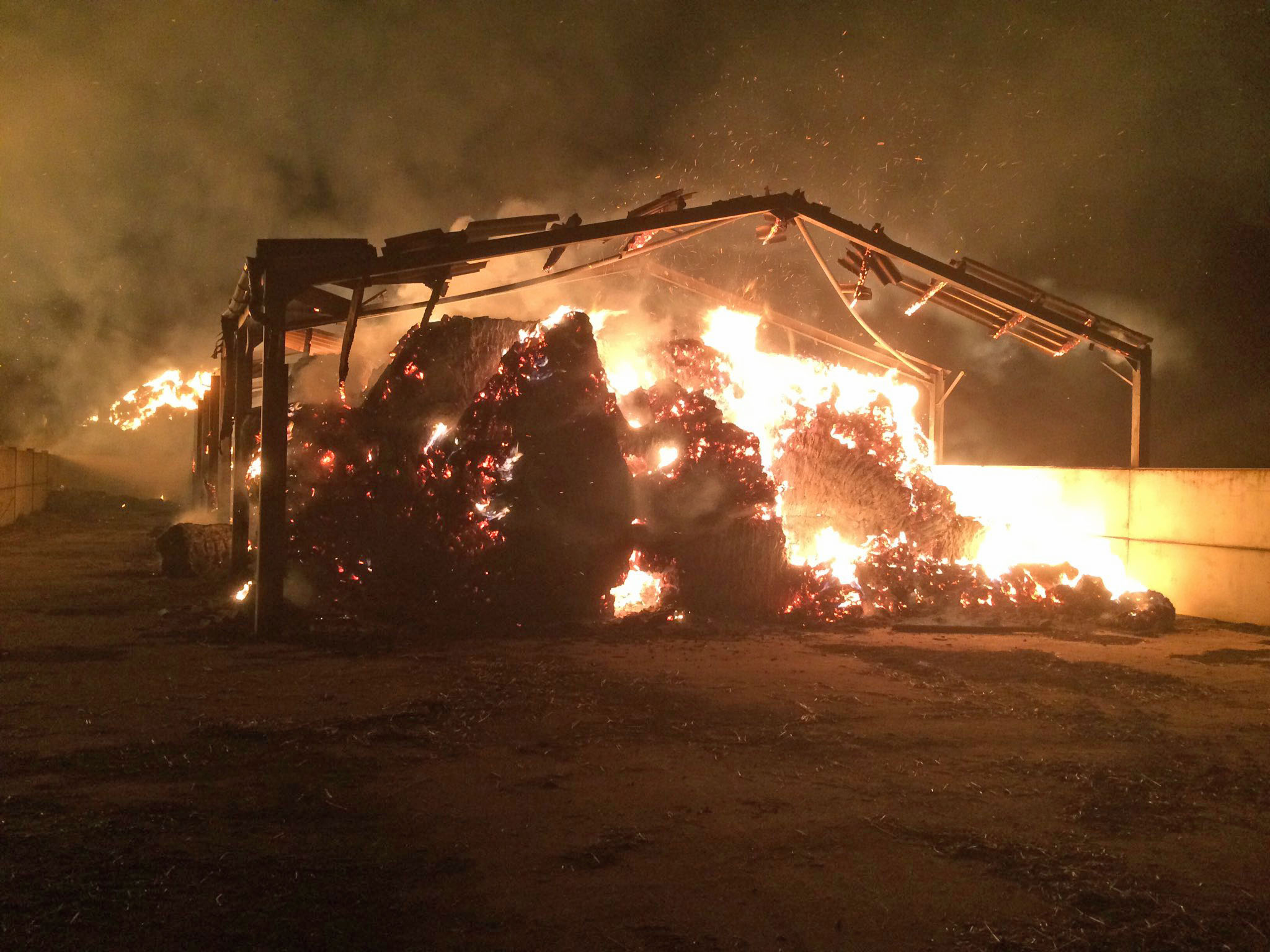This work has ranged from educating young people in schools to providing free home safety checks to the elderly and most vulnerable in our communities.
This work has led to a year-on-year reduction in the number of fires in our county and has made a lot of people safer. However, Nottinghamshire spans more than 830 square miles and is home to more than 800,000 people – with more than 80 per cent of the county being classed as rural. Unfortunately, we have seen increases in rural crime offences in Nottinghamshire. Amongst these offences is a rise in arson.
Since the start of 2016 Nottinghamshire Fire and Rescue Service have attended more than 200 agricultural fires, many of which were started deliberately. We’ve therefore been working hard with our partners, including Nottinghamshire Police and the NFU, to reduce this number going forward.
We’ve had a great response to this work but there is still more to do.
We are very keen to keep our ‘foot on the gas’ with our rural prevention work. This will therefore see us continuing to work closely with our Police colleagues – who have also identified driving down rural crime as one of their priorities – to engage with our rural communities and educate people on how to keep themselves, and their businesses, safe from fires.
Why target farms?
Farms are particularly vulnerable to deliberate fire setting activity. Their isolated location, open boundaries, readily ignitable materials such as hay and straw stacks make them an easy target.
A serious fire on a farm can affect the financial stability of even the most well run business. Over 40 per cent of businesses that suffer a serious fire never trade successfully again. Within rural communities the wider impact, such as the sense of community wellbeing, as well as things like the knock-on effect to the local economy is also more prevalent.
Analysis of these incidents shows the most common months for agricultural fires to occur is August, followed by September and then July. This coincides with the harvest period which sees increased farming activity and also the summer schools holiday, which see’s higher footfall and recreational activity in rural areas. There is also a known correlation between deliberate fire setting and school holiday periods.
How can NFRS help you?
Over recent months we have been working closely with our partners to determine our best course of action to deal with farm fires after the event, and to also try and prevent the fires from happening in the first place.
Part of this has included the production of an Arson Reduction Checklist. We have recently made crews available to attend farms, particularly in the North of the county, and go through this checklist with land owners.
This will also allow local crews to introduce themselves and to also become familiar with your premises gaining vital intelligence for a tactical plan should a fire or any incident occur.
If this is something you would be interested in, please contact us on 0800 022 3235.
Ten Top Tips:
· Remove hay and straw from fields as soon as possible after harvesting.
· Store bales separate from buildings, machinery and chemicals.
· Make stacks a reasonable size and space them at least 10 metres apart.
· Keep petrol, diesel and other fuels (including gas cylinders) stored in secure areas.
. Keep fertilisers and pesticides under lock and key.
· Dispose of refuse safely on a regular basis.
· Ensure fences and gates are in good condition and check them regularly.
· Install intruder sensors and security lighting.
· Prepare a fire routine and action plan and make sure all farm workers know what to do.
· If a fire breaks out, call the fire and rescue service without delay.
